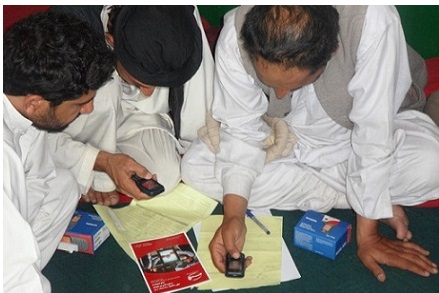Enterprises in Afghanistan face many constraints, some common to all Low Income Countries (LICs), and some specific to fragile and conflict affected states. In Afghanistan, imperfect government control, rampant corruption, poor infrastructure, and weak growth-supporting state institutions all interact to impede private sector development. Even something as apparently straightforward as paying wages is complicated. Currently, most Afghan firms pay their employees by cash transfers, given the limited penetration of electronic bank deposits. This is plagued by inefficiencies resulting from: (i) an underdeveloped banking sector which reaches less than 5% of the population and is in a state of crisis because of the 2011 Kabul Bank failure; (ii) leakage/graft of employee salary by supervisors; and (iii) high costs of currency transport, due unreliable transport infrastructure and concerns of physical security.
This research will examine the extent to which these constraints can be relaxed through technological innovation in the form of a mobile phone-based salary payment system. Roshan, the largest mobile phone provider, is just beginning to deploy the Mobile Money Salary Disbursement Service (MMSDS), which allows Afghan firms to pay employee's salaries by directly transmitting balance to the employee's mobile phone. This has the potential to dramatically improve the security, reliability, and efficiency of salary payments. The researchers address the following questions, using the information generated by the initial deployment of MMSDS in one or two large firms:
- What are the internal losses in firms due to graft in the traditional salary payments system?
- Does the increased reliability of payment, and associated reduction in rent-seeking opportunities affect employee take-home pay?
- Can mobile money empower firms to hire employees and expand operations in areas that had formerly been prohibitively costly or dangerous to access?
- How does the increased reliability of payment and reduction in graft affect employee retention, motivation, and productivity?
- Do their saving and remittance patterns change?
- Is intrahousehold bargaining affected by the opportunity to disguise money in a mobile wallet?
- Do employees adopt other mobile banking services, and/or substitute out of traditional institutions such as hawalas?
- How does adoption depend on mobile money agent availability?
- During the exploratory phase, the team will use this information to inform the design of the research and data collection in a large scale Randomized Control Trial.







